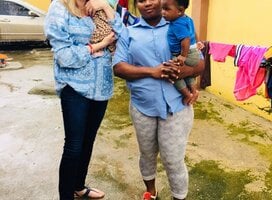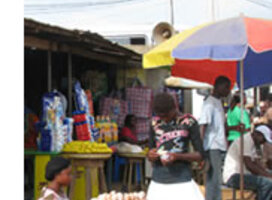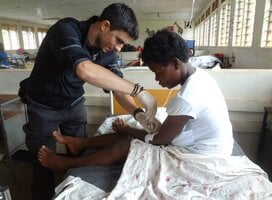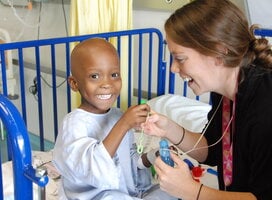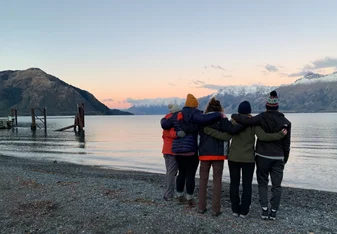Volunteer in Benin
Benin is a country with a rich, complex culture and history.
Benin doesn't have as many volunteer opportunities as more popular destinations on the continent like Tanzania or South Africa, but that's no reason to pass over this beautiful West African nation. A significant part of social life in this country of about 10 million people revolves around food, so you'll have plenty of chances to make friends and sample local cuisine at the same time.
If you're looking to get away from the voluntourism crowds and immerse yourself in a fascinating culture, set your sights on Benin, where you can support organizations working in all different areas, from public health to microfinance. Maybe you'll even pick up a few words from one of the more than 50 local languages while you're there!
Here are some of the most popular types of volunteer projects in Benin:
Health: There are opportunities for people with all different levels of experience and know-how to volunteer at places like local health centers or clinics administered by an international aid organization. You could help with patient intake, public health outreach initiatives, health education classes, and much more.
Microfinance and Entrepreneurship: As a volunteer with a microfinance initiative, you'll support efforts to help local people (usually women) grow their own small businesses, form cooperatives, and break the cycle of poverty. You could help facilitate meetings, follow up with participants, help track payments and loans, or produce updates about the project for publication.
Education: Whether you just received your TEFL certification, are a career professional looking to teach a skill, or are an experienced teacher, organizations will be happy to have you on board as a volunteer teacher. You could help with ESL conversation classes, lead subject classes in English, plan extracurricular or after-school enrichment activities, or even work with adult education courses.
Technology: Technology and communication services are often lacking in developing countries, but they're no less important, so there's plenty of need for skilled and enthusiastic volunteers. You could teach beginner computer skills, set up equipment, help businesses and organizations create templates and manage forms, do basic coding, or assist with troubleshooting.
Your location will depend on what kind of volunteer work you're doing and where your host organization is based. Technology and economic development projects might be based in urban centers like Porto-Novo or Cotonou. Other types of projects, like agriculture, microfinance, and women's empowerment are more likely to be based in rural areas, while education and public health projects run the gamut.
Housing
Since many volunteer projects are in rural areas, most organizations will be able to help you find housing, either in volunteer-specific housing or through a homestay with a local family. Keep in mind that the amenities may be very different from what you're used to -- many rural areas don't have consistent electricity or running water, so be prepared to adapt to your new location.
